This article was co-authored by wikiHow staff writer, Eric McClure. Eric McClure is an editing fellow at wikiHow where he has been editing, researching, and creating content since 2019. A former educator and poet, his work has appeared in Carcinogenic Poetry, Shot Glass Journal, Prairie Margins, and The Rusty Nail. His digital chapbook, The Internet, was also published in TL;DR Magazine. He was the winner of the Paul Carroll award for outstanding achievement in creative writing in 2014, and he was a featured reader at the Poetry Foundation’s Open Door Reading Series in 2015. Eric holds a BA in English from the University of Illinois at Chicago, and an MEd in secondary education from DePaul University.
There are 10 references cited in this article, which can be found at the bottom of the page.
This article has been viewed 3,541 times.
Learn more...
If you’re looking to move before your lease is up, you may be wondering how you can find someone to take your place and free you from your contract. While you might be a bit nervous about finding a way out of your unit, rest assured that your landlord is more than likely to work with you if you’ve been a kind and respectful tenant. In this article, we’ll walk you through everything you’ll need to do if your landlord asks you to find a replacement tenant so that you can break your rental lease without running into trouble.
Things You Should Know
- Read your lease thoroughly, since it usually outlines the early termination process.
- Talk to your landlord before you do anything else, since they may want to find a new tenant on their own.
- Advertise the unit online and in newspapers to reach as many potential renters as possible.
Steps
Talking to Your Landlord
-
1Read your lease thoroughly. Your lease likely outlines what you’re allowed to do when it comes to breaking your lease. While you can still ask your landlord about making an exception, it helps to know what your lease says when it’s time to talk to your landlord. If there is a procedure for getting out of your lease without finding a new tenant, follow that if you can.[1]
- If your lease says you can sublet the unit, you are allowed to rent the apartment out without your landlord even knowing about it. However, you would be on the hook for any damages or issues.
- If your lease doesn’t explain how/if you can break it, just ask your landlord.
- If you are not allowed to find a new tenant or break your lease, your landlord will expect you to pay out the remainder of your lease—regardless of whether you’re there or not.
- There may be an early termination fee that you can pay upfront to break your lease at any time. The average cost to break an apartment lease this way ranges from 1 to 3 months rent.[2]
-
2Reach out to your landlord to tell them you want to break your lease. Contact your landlord or ask to speak to them the next time you see them. Explain that you’d like to break your lease early but that you’re willing to help them find a new tenant. See what they say and try to be as kind and amicable as possible.[3]
- The earlier you bring this up, the more likely your landlord will be to work with you. If it’s May and you know you need to move in September, don’t wait until the last week of August to say something.
Advertisement -
3Negotiate and compromise with your landlord, if possible. This is going to be a lot easier if you work with your landlord, not against them. If they’re resistant to the idea at first, tell them you’ll cover the rent until the unit is filled. Offer to help facilitate showings, or pay a fee to break your lease early. Whatever you can do to get them to agree, do it.[4]
- If you’ve had a good relationship with your landlord, it’s very possible that they’ll immediately agree to let you find a new tenant or break your lease and move.
- You might tell your landlord you’d be willing to pay an extra month’s rent as a “termination fee,” or tell them they could keep your security deposit.
- Tell your landlord they might be able to find a new tenant who will pay more than you currently do for rent.
-
4Confirm that your landlord wants you to find a new tenant. The odds are very low your landlord will want you finding the tenant, since landlords typically screen applicants themselves to see if they’re a good fit. Double-check that they want you hunting for applicants on your own. If they do, ask them exactly how they’d like you to go about that.[5]
- Your landlord may tell you that they’d like to cover the entire process, from finding a tenant to having them fill out the application. Alternatively, they may just ask to cover showings, or set up appointments for an open house.
-
5Check your state laws if your landlord is resistant. If your landlord won’t let you break the lease, comb the state and city laws to see what they say about violating a lease. There are a handful of reasons you are likely allowed to legally break your lease without your landlord’s consent. If you qualify for one of these exemptions, talk to a lawyer to confirm that you’re in the clear.[6] Potential reasons (depending on where you live) include:
- An unsafe rental unit that is uninhabitable.
- Your landlord has violated your privacy rights.
- Your landlord has failed to provide required rental licenses.
- You’ve been enlisted for active military duty.
-
6Get everything in writing in case you run into trouble. Send an email to confirm everything with your landlord. This way, they’ll reply in writing. If anything goes sour and you have to fight with your landlord in court, you’ll have documented proof that your landlord agreed to let you break your lease.[7]
- If this does end up going this way, look online to see if there is free legal help for renters. There are often free legal services for renters who end up being sued by their landlords.
Finding Applicants
-
1Post an ad online to showcase your apartment. Hop on Zillow, Craigslist, Apartments.com, Facebook Marketplace, and any other websites where people hunt for rentals in your area. Craft a short classified ad highlighting the key info potential tenants might need. Include the address, square footage (if you know it), number of bedrooms, and number of bathrooms. Include the cost of rent and a contact number or email for folks who are interested.[8]
- You might write something like, “Recently renovated 2 bedroom unit on a beautiful, quiet block in Lincoln Park. Rent is $1,000 a month, and the unit is available starting June 1st.”
- Include photos of your unit! If you don’t want to take new photos yourself, ask your landlord for the older photos from when you originally rented the place.
- You may need to pay $50-100 for posting on some listing sites.
-
2Take out an ad in your local newspaper. Hop online and find your local newspaper’s website. Buy a short classified ad with your unit’s information and availability date. Keep it punchy and short, and stick to the key information since you typically pay by line or by word.[9]
- You might write, “2 bedroom 1 bath available 6/1 in Lincoln Park. Call 555-9283 to set up showing.”
- Even if you’ve never used a newspaper to apartment hunt, a lot of folks still do—especially since there are so many scams online.
- Advertising in a smaller local paper shouldn’t be especially expensive. Expect to spend $25-100.
-
3Reach out to people you know who may be looking for housing. Post on Facebook, Instagram, and Snapchat to let all of your friends know your apartment is up for grabs. This is an especially good way to find reliable tenant, since you’ll know which of your friends are dependable or not. This also gives you some freedom to try and sell the unit a bit, since you’ll know which of your friends are into your apartment.[10]
- You can also ask your friends to share your post so that you can connect with friends of friends and widen your search a bit.
-
4Coordinate showings with people who contact you. When people reach out about the apartment, set up a time to show them the apartment. Try to be as flexible as possible so that you can show the unit to as many potential applicants as possible. When folks show up, let them look around at their own pace. Answer any questions they have and try to point out the perks of living at the unit.[11]
- You could point out how great the landlord is or how friendly your neighbors are.
- You might tell them about great local restaurants or shops that are in walking distance.
-
5Offer practical or financial incentives to sweeten the deal. If you’re struggling to find someone to take over your lease or you want this process to move as quickly as possible, try to throw in something special. This will motivate people to jump on the offer so that you can put this whole thing behind you.[12] You could offer to:
- Leave some furniture behind. Moving something like a couch can be a real pain, and offering to leave something behind can be a big deal!
- Cover a month’s rent. If the choice is between paying 2+ months rent while your apartment sits empty and covering 1 month, paying that 1 month doesn’t look like such a bad move.
- Help cover background check and application fee. This small gesture can mean a lot if someone is limited on funds.
Closing the Deal
-
1Sublet the apartment yourself if it’s legal where you live. If subletting is legal where you live, draft up a rental agreement and have the applicant sign it. If your landlord didn’t give you an application, look online to find a template for a standard lease agreement in your state or copy your landlord’s lease.[13]
- Talk to a lawyer to make 100% sure that subletting is allowed where you live. If you do this when you aren’t allowed to, you could end up in serious legal trouble.
- Keep in mind, you will be personally responsible if anything goes wrong with the unit.
-
2Forward the applications to your landlord. If your landlord is allowing someone else to take your lease over, give the new applicant a copy of the landlord’s application. Allow applicants to fill it out and then scan and email the application to your landlord. They’ll run the background and credit checks and let you know when they’ve found a suitable replacement tenant.[14]
- Submit as many applications as you possibly can. Try not to turn away anyone who is interested in the place—even if you think they won’t get approved. You never know who your landlord will choose!
-
3Sign a sublease agreement if your landlord asks for one. If your landlord asks for you to sign an agreement that your lease will transfer over to another tenant, read it thoroughly. If it relieves you of your liability and provides a move out date, go ahead and sign it. If you have any questions, ask your landlord for clarity and contact a housing lawyer if necessary.[15]
- If they don’t ask for anything in writing but they have the new tenant sign a lease, you’re in the clear. You are not obligated to sign anything if someone else has contract saying it’s their unit.
-
4Work with the new tenant and landlord to coordinate move out. Once you’ve got your move out date in place, schedule movers or reach out to friends for help. Reach out to your landlord to confirm a walk-through date to inspect the apartment and confirm that the unit is in good shape. Turn in your keys after you move out and enjoy your new journey![16]
- If your landlord doesn’t do a walk-through with you, take photos and videos of the apartment. This way, if your landlord claims you’ve damaged the unit, you’ll have proof that the apartment was left intact.
References
- ↑ https://guides.sll.texas.gov/landlord-tenant-law/ending-the-lease
- ↑ https://www.move.org/how-to-break-your-lease-and-why-you-shouldnt/
- ↑ https://www.forbes.com/sites/zillow/2013/06/07/when-should-you-break-a-lease/?sh=34ef83efc921
- ↑ https://www.forbes.com/sites/zillow/2013/06/07/when-should-you-break-a-lease/?sh=34ef83efc921
- ↑ https://www.latimes.com/archives/la-xpm-2010-may-30-la-fi-rent-20100530-story.html
- ↑ https://www.nolo.com/legal-encyclopedia/tenants-right-break-rental-lease-pennsylvania.html
- ↑ https://www.forbes.com/sites/zillow/2013/06/07/when-should-you-break-a-lease/?sh=34ef83efc921
- ↑ https://www.ohrc.on.ca/en/writing-fair-rental-housing-ad-fact-sheet
- ↑ https://www.military.com/money/home-ownership/rental-property/10-ways-to-find-a-good-renter-for-your-home.html
- ↑ https://www.military.com/money/home-ownership/rental-property/10-ways-to-find-a-good-renter-for-your-home.html
- ↑ https://realestate.usnews.com/real-estate/articles/the-dos-and-donts-of-a-lease-takeover-for-an-apartment
- ↑ https://realestate.usnews.com/real-estate/articles/the-dos-and-donts-of-a-lease-takeover-for-an-apartment
- ↑ https://realestate.usnews.com/real-estate/articles/how-to-break-your-apartment-lease
- ↑ https://realestate.usnews.com/real-estate/articles/how-to-break-your-apartment-lease
- ↑ https://www.military.com/money/home-ownership/rental-property/10-ways-to-find-a-good-renter-for-your-home.html
- ↑ https://www.tenantresourcecenter.org/moving_out
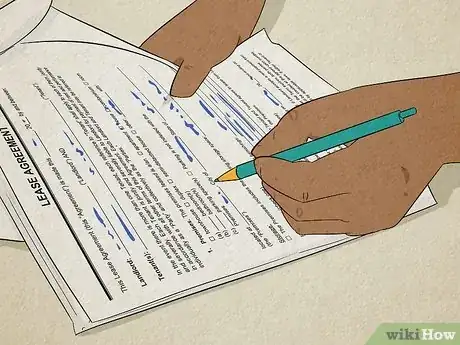
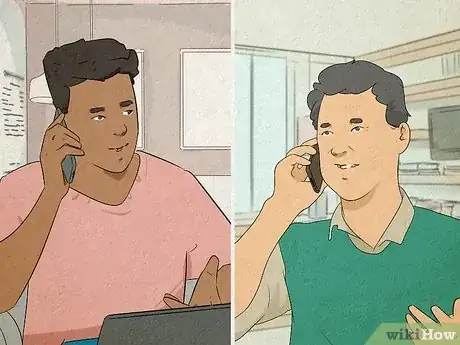

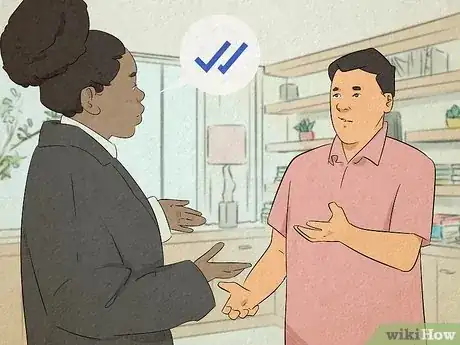

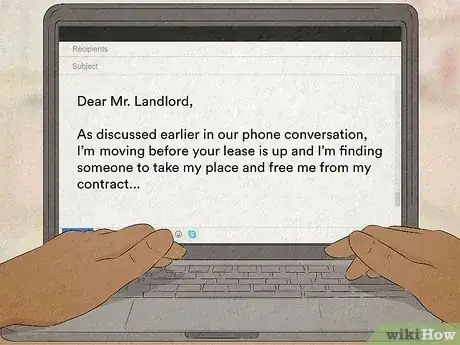
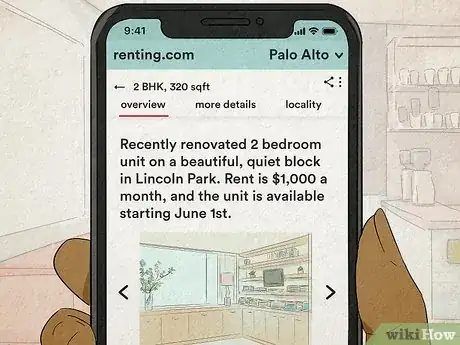
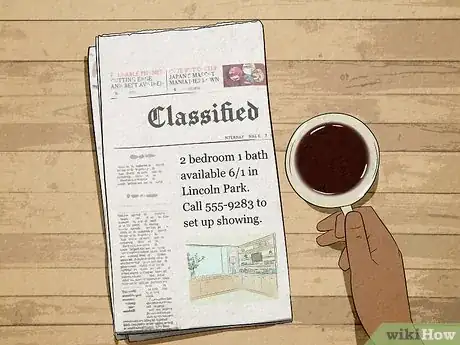



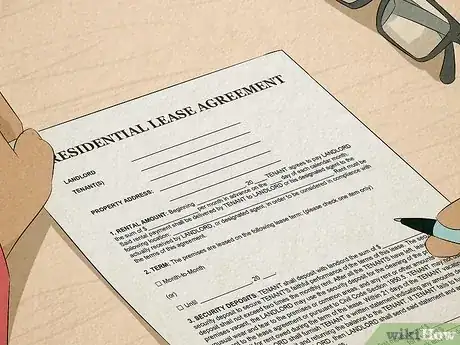
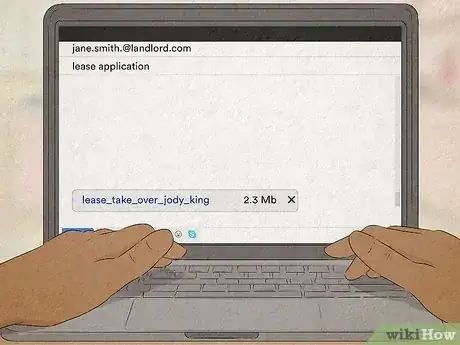
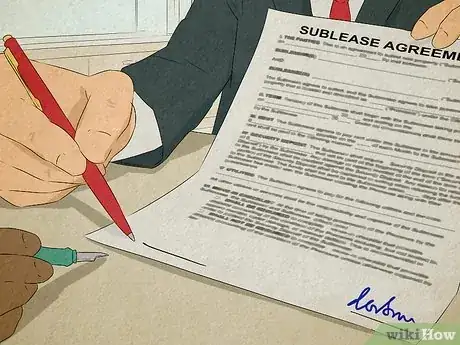
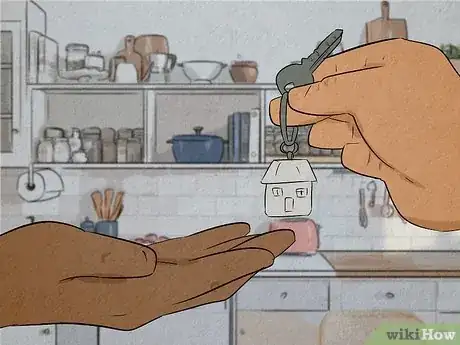






-Step-10.webp)




















































